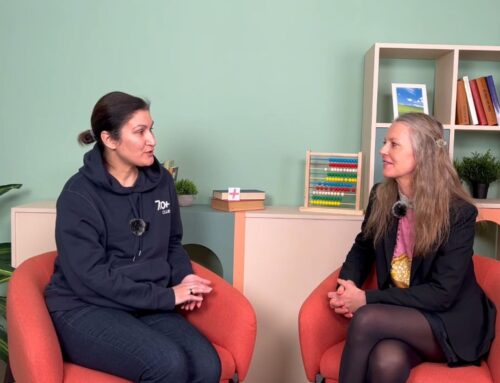Table of Contents
- 3 things to do before you move abroad to study
- Start planning your finances right away
- Get your VISA sorted
- Research accommodation
- 6 things to do once you’ve arrived in your new country
- Learn the local language and culture
- Make new friends
- Get a local student bank account
- Get a sim card that works in your chosen country
- Keep a diary of your experiences
- Don’t rush to get back home
Studying abroad is the chance of a lifetime as you’ll have fantastic new experiences and grow as you learn surrounded by a new culture.
Your CV will look great as a result, and you’ll make friends and contacts that will last a lifetime.
We’re going to look at how to make the most of this wonderful chance.
3 things to do before you move abroad to study
1. Start planning your finances right away
Once you get the letter admitting you into a new university or business school overseas one of the first things you should do is plan your finances.
If you have time before you leave for a new country working to save up will help boost your savings. Even part-time work or an internship will help boost your funds.
Many students do bar work or restaurant work to boost their savings before they leave their own country to study abroad.
You may also want to look into student loans and similar financing options.
Research scholarships and other streams of income once you have arrived in a new town.
Your chosen university may offer a scholarship for your course or financial aid specifically for foreign students.
The scholarship board may want to look at your own as well as your parents’ income so looking into this early is key.
Being able to demonstrate you have special skills such as sporting prowess or academic ability might also be a factor so make sure you’ve passed your SAT with a high score.
Ace your SAT! Start your prep journey now >
2. Get your VISA sorted
You may need a special visa to study in your chosen country which could mean an interview at the local embassy.
Most countries have embassies in their capital cities, so you’ll need to be ready to travel if necessary and ensure you make your appointment on time.
These visas can take a couple of months to arrange and dealing with bureaucracy is never simple.
Your chosen university will be able to help and advise you on what type of visa you might need to study there, so speak to their experts and take their advice right after you get the acceptance letter.
You can also check on your chosen country’s embassy website to see the requirements for students.
3. Research accommodation
Your university will most likely have student accommodation which is great as it’s inexpensive but also you’ll meet other students easily once you arrive in your new country to study.
Many students select this option for their first year of study.
Your university’s website will list accommodation options. The best ones book up quickly so you might want to visit the campus ahead of time and see where you’ll be living for yourself and investigate backup options such as living with a local family who accepts students, giving them room and board as part of the deal.
Your university will be able to help with this and ensure you find a place that you’re happy with.
6 things to do once you’ve arrived in your new country
Once you’re settled into your new university and are busy attending lectures and classes there can be things you overlook.
Here’s a list of six things to do once you arrive.
1. Learn the local language and culture
A huge benefit of studying abroad is being introduced to a new culture and possibly a new language. Better yet your courses may be in one language and local life in another.
Studying is important but so is taking time off to relax and reboot.
Ask your university or school about local museums and landmarks to visit, take local language classes, and network with the local students who are studying on the same campus as you. They’ll want to show off their fantastic hometown and will be willing to introduce you to new restaurants, places, and other people.
Trying local food and drinks and spending time exploring the nearest cities will be a key part of your studying abroad experience.
You could also get a part-time job or volunteer for a local charity which will help immerse you in local culture and really help make your CV/ resume stand out once you’re back home.
It would be a shame to travel back home without feeling you had seen all your university’s country has to offer so make sure you prioritize making the most of this chance.
You may not feel as though you need language classes if you’re from a country that speaks the same language as your university but learning about the local culture will be a huge bonus to your time studying abroad.
2. Make new friends
Making new friends can seem hard but remember there are plenty of other students who won’t know anyone as well.
Join as many networking events and classes as you can. Spending time at the gym or on hobbies such as cycling, yoga, or hiking will be a great way to get to know people.
Another reason to make friends is you’ll help each other study and be able to make revision and prep time more fun.
Ultimately, you’ll do better on your exams if you have study buddies to rely on for support.
3. Get a local student bank account
You’ll save money on credit card fees if you get a local student bank account.
You’ll save money on currency exchange rates and many student bank accounts offer perks such as reductions and discounts on local businesses.
Shopping around and looking at reviews from other banking customers will ensure you get a great deal.
4. Get a sim card that works in your chosen country
A lot of people want to be able to use their phone from home so they can keep in contact with their family and friends back home but getting a local sim card is best when it comes to cost.
You will be able to get messages once you land and have accessed Wi-Fi at a local café or in your accommodation, but for living in a new country having a local sim card is the cheapest long-term.
5. Keep a diary of your experiences
It’s worth documenting your experiences so you remember it all once you’re back home.
This could be as simple as posting photos on an Instagram account that your friends and family can follow or writing a pen-and-paper diary, but you’ll be glad you kept a note of what you did and where you went as well as names of places you saw and food you ate!
6. Don’t rush to get back home
Once you have completed your time studying abroad why not schedule some time to see the country before you leave?
Yes, you’ll want to get back to your family and friends back home but seeing everything the country has to offer will be well worth it.
You can see a lot in just a week or two if you extend your stay.
Summary
Studying abroad is a life-changing experience that can lead to better job opportunities long-term as well as enrich your life.
With careful planning, you can make sure you make the most of your time overseas. Research and talking to other students and representatives from your university are key. Interacting with peers and representatives from universities across the globe is a great way to learn tips about studying abroad.
You can make valuable friends and contacts online in chat groups. 700+Club has a lively discord group that is packed with helpful people and tips >








